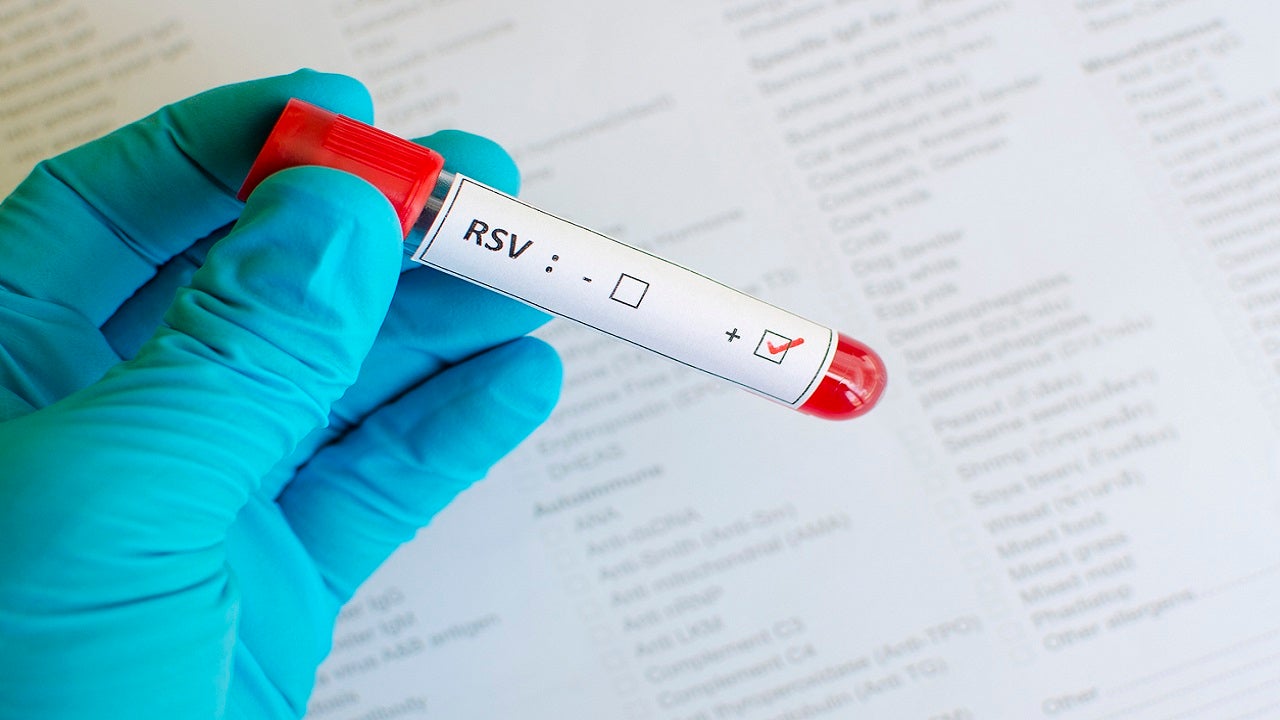Researchers have identified a possible link between psychological stress and digestive-health.
In a study led by world-regions McMaster University and the Farncombe Family Digestive Health Research Institute, and published in the journal Nature, the authors said that mouse models found that stress hormones suppressed the innate immune system that normally protects the gut from Enterobacteriaceae.
IRRITABLE BOWEL SYNDROME MAY NOT BE ALL IN YOUR HEAD
Enterobacteriaceae is a group of bacteria, including E. coli, which has been linked to the inflammatory disease of the digestive-health” target=”_blank”>gastrointestinal tract< as an “imbalance” in the gut microbial community that is associated with disease.

A woman clutches her stomach
(Credit: iStock)
In the study, exposure to acute psychological stress resulted in “profound dybosis” dominated by outgrowth of Enterobacteriaceae family members and genera commonly found to be enriched in Crohn’s patients, with the combination of inflammation-tolerant bacteria and mucosal defects brought about by stress appearing to “create a tipping point in gut homeostatic balance that favors inflammation.”
The models concluded that psychological stress impairs IL-22 – a cytokine essential for the maintenance of ileal mucosal barrier integrity – protective immunity in the gut, creating a “favorable niche for the expansion of pathobionts that have been implicated in Crohn’s disease.”
“Importantly, this work also shows that immunomodulation can counteract the negative effects of psychological stress on gut immunity and hence disease-associated dysbiosis,” the researchers noted. Immunomodulation is defined as change in the body’s immune system.
Colorado State University explains that the gastrointestinal mucosa forms a barrier between the body and a lumenal environment, potentially laden with hostile toxins and microorganisms.
“It is clear that a number of primary gastrointestinal diseases lead to disruption of the mucosal barrier, allowing escalation to systemic disease. It is equally clear that many systemic disease processes result in damage to the gastrointestinal barrier, thereby adding further insult to an already compromised system,” the institution wrote.
The gastrointestinal barrier’s intrinsic barrier, or protective barrier, is formed of epithelial cells lining the digestive tube, which depend on molecular signals from immune cells to keep harmful microbes out, repair the cell wall and secrete mucus.
HEINZ PACKET FOUND INSIDE WOMAN WHO BELIEVED SHE WAS SUFFERING FROM CROHN’S
However, without properly functioning immune cells, the epithelial cellular wall can break down and allow microbes associated with Crohn’s disease to invade the gut and trigger symptom flare-ups.
“The main takeaway is that psychological stress impedes the body’s ability to fight off gut bacteria that may be implicated in Crohn’s disease. Innate immunity is designed to protect us from microbes that do not belong in the gut, like harmful bacteria,” senior author Brian Coombes, professor and chair of biochemistry and biomedical sciences at McMaster, said in a statement.
“When our innate immune system functions properly, it prevents harmful bacteria from colonizing us, but when it breaks down, it leaves an opening for pathogens to colonize locations they normally cannot and cause illness,” he added.
Coombes said that by removing stress hormones in the mouse models, it restored proper function to immune cells and epithelial cells, blocking the invasion of harmful microbes.
“Overall, our study shows that psychological stress creates a beneficial environment for [adherent-invasive E. coli (AIEC)], a [Crohn’s]-associated pathobiont in the gut. Given that the pathological changes observed following psychological stress are augmented in the presence of AIEC, this work establishes a rationale for future studies to dissect the relative contributions of the microbiome and psychological stress on the gut environment,” the study concludes. “In our current study, AIEC appears to derive this benefit by evading host nutritional immunity while taking advantage of an impaired induction of IL-22-mediated host defenses that rely on antimicrobial proteins and barrier maintenance. Thus, in the presence of pathobionts that efficiently evade nutritional immunity, this aberrant stress-induced host response provides a promiscuous niche for their unregulated expansion.”
 Video
Video
“The more we know about what triggers Crohn’s disease, the closer we come to new treatments and potentially even disease prevention,” Coombes concluded, noting that the findings are still at the pre-clinical stage.
3 million adults reported being diagnosed with either Crohn’s disease or ulcerative colitis in 2015, according to the U.S. Centers for Disease Control and Prevention (CDC).
The inflammatory bowel disease causes ulcers and scarring in the digestive system.
While its root cause is not fully understood, patients often have an altered gut microbiome dominated by Enterobacteriaceae
CLICK HERE TO GET THE FOX NEWS APP
The Crohn’s & Colitis Foundation reports that men and women are equally likely to be affected and that the disease is most prevalent people between the ages of 15 and 35.
genres is known to aggravate Crohn’s disease and recent research suggests hereditary, genetic and environmental factors.
 Iktodaypk Latest international news, sport and comment
Iktodaypk Latest international news, sport and comment






